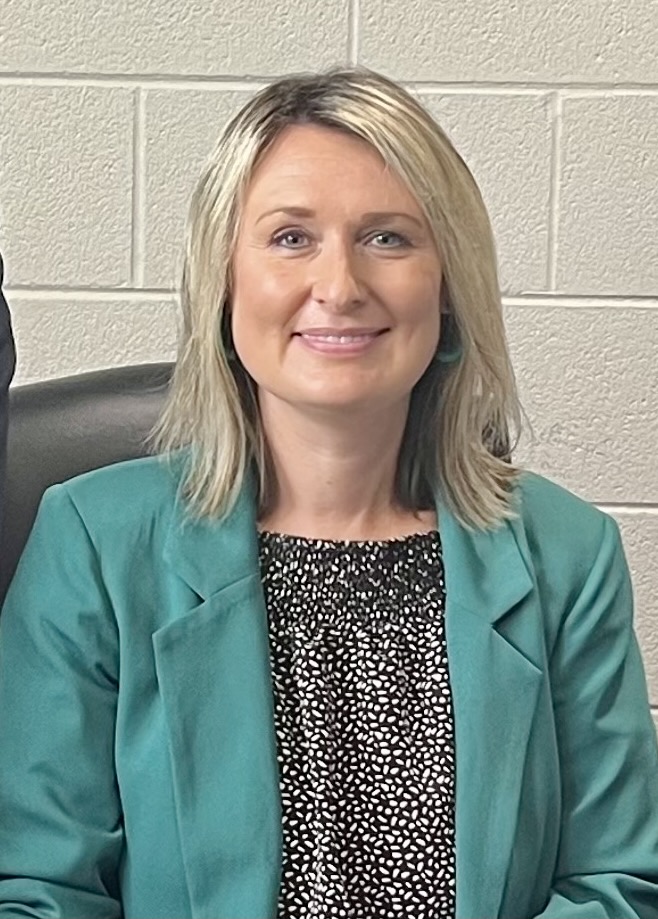
Ashley Lamb-Sinclair
By Ashley Lamb-Sinclair
ashley.lamb-sinclair@education.ky.gov
When I was younger, I worked in a small mom and pop Italian restaurant that made a name for itself with manicotti and butter-drenched garlic bread. I truly loved working there, and I have always been the kind to work really hard when I love what I do. (If I don’t love it, you’re lucky if you can get me off the couch.)
Soon enough, I had earned the trust of my employer, who gave me some managerial duties –closing the restaurant, counting the cash and handling keys. It felt good to be trusted, but my employer was often erratic at best.
For us employees, here is what we saw: She talked down to everyone. She made crazy demands. She screamed at us in front of diners. She would act this way toward me and then give me more responsibilities. It was an exhausting experience.
One night before the dinner rush, I worked alongside her to prepare for the night. To me, it felt like she corrected my every move, berated me for trivial mistakes and nagged me about pushing the evening’s specials. After months of saying, “Yes, ma’am” or remaining silent, I finally exploded. I told her every possible thing I wanted to tell her, and trust me, I had insults aplenty. It was not my finest moment. I threw down my apron and stormed out the back door.
As most 17-year-olds might do, I broke down crying in the parking lot, trying to figure out how to tell my parents that I quit my job. Suddenly, I heard a voice behind me. When I turned around, there was my boss, uttering the words I thought she would never say: “I’m sorry.”
She explained to me that she was ill. She was burdened with worry about what would become of her restaurant and her family. Before my eyes, this woman transformed into someone with whom I empathized.
I had lived in my own bubble, never considering that there might be a reason for her behavior. And she had lived in hers, never considering that the way she treated us was condescending and rude.
Education Week recently posted this article about a similar experience for those of us in education. The writer, Jai Mehta, notes a recent study that found teachers felt “outright hostility about the ideas and even motives of those further up the chain.” Higher-ups, he wrote, had thought about how to get teachers to buy in to their policy shifts, yet the teacher interviews suggested that they had made little progress.
I have to admit that after a decade in the classroom, I can relate to the teachers in that study. Usually, my reaction to most top-down initiatives is the same as it was to my former employer — acquiescence with a side of resentment or outright outrage.
Yet, here I am. Two weeks into my sabbatical with the Kentucky Department of Education and I feel a little disloyal to my former self as I discover that I don’t disagree with all of these people in the “ivory tower.” I expected to feel a certain level of “I told you so,” offer up a few opinions and be along on my merry way back into my classroom, where the real work starts.
But what I have discovered instead are warriors who fight on every side of the battles we fight in education.
Before winter break, I spent an afternoon at a superintendent’s co-op meeting. I was pleased to see the superintendents ask thoughtful questions of Education Commissioner Stephen Pruitt about how new policies and initiatives might impact their teachers and students. It reminded me of almost every faculty meeting I have ever attended. We all just want to know how each other’s plans will impact our students because we all just want to do what’s best for our kids.
Since coming to KDE, I have met with every associate commissioner in the department and many other project leads and behind-the-scenes analysts. The first question I have most often been asked is, “How can we reach teachers?” And the second is, “How can we get teachers to talk to us?”
Are we all making mistakes at every level? Of course. But having seen things from the inside, however brief it has been thus far, I recognize the need for bursting the bubbles in which we trap ourselves. We have to open meaningful dialogue and create systems of communication that allow the conversation between practitioner and policymaker to be on-going.
Flashback to my 17-year-old self, if her employees would have spoken up sooner, our employer might have had a completely different approach to how she managed us.
Teachers in the classroom fight the good fight every single day. It is imperative that every person working in education, and outside of it, understand the complexities of that battle. But teachers should also shift the view that I am guilty of — that anyone working in education who isn’t a teacher is the enemy. We must work together to build a culture of trust.
It is not us versus them in this great fight. So how do WE move the education systems in Kentucky forward together, rather than carrying that burden separately?
Ashley Lamb-Sinclair is the 2016 Kentucky Teacher of the Year, a National Board certified teacher and is in her 10th year of teaching. She has taught in Fayette and Jefferson counties and now teaches English and creative writing at North Oldham High School (Oldham County). She currently is on sabbatical from her classroom and working at the Kentucky Department of Education.



Leave A Comment